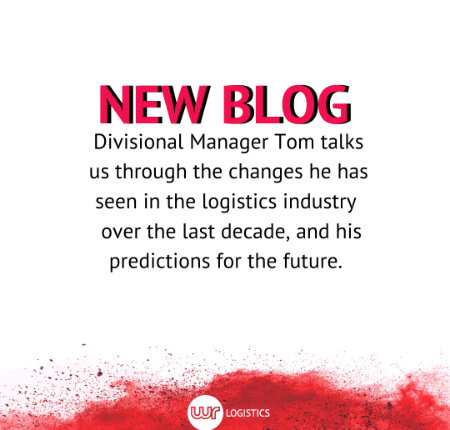WR Logistics: What were the biggest trends of the last decade?
In transport and logistics, the 2010s have seen a lot of change. As we settle into a new decade, we decided to take look back at the last 10 years, and ask our consultants about the biggest shifts and trends that they’ve observed. Here’s what they had to say:
Logistics trends: Digitalisation
Digitalisation has been the major logistics trends of the last 10 years. As the nature of roles and operations have changed – companies are now looking to bring in talent with technical experience. While past operations could be managed with an excel spreadsheet and whiteboard, technological advancement is now making this impossible.
However, this sea-change risks leaving an older, more experienced generation behind, with some companies preferring to engage emerging talent. Ironically, though, this group is showing very little interest in the sector. Currently, only 8% of people aged between 11-20 years old consider logistics to be an attractive career option.
To combat this, industry figures need to get in front of young audiences to talk about the benefits of working in logistics. Careers advice will also need to be improved, and students should be given exposure to the industry at key decision making stages
in their lives.
AI
Closely tied in with increased digitalisation is the rise of AI and automation in the sector. While this logistics trend is only just gathering pace, many large firms are automating large swathes of their workforce, with an eventual view towards driverless vehicles and automated warehouses. This will undoubtedly have a huge effect on the talent landscape.
For example, some clients we work with have introduced innovations such as voice picking in warehouses. At Ocado, the company has spent the last few years designing highly automated fulfilment centres. One such operation in Andover is set to process 3.5 million items, or around 65,000 orders a week. Whether this trend will extend out to SMEs and smaller operation remains to be seen.
Brexit
Finally, like almost all other sectors, Brexit has had an effect on logistics. The prevailing impact of Brexit has been to introduce widespread uncertainty to the sector. As transport and logistics relies on large numbers of EU talent, companies could potentially be
faced with a murkier picture when it comes to hiring.
However, on the whole, organisations have been holding fire on making change to their talent strategies, as uncertainty has been so high. Despite this, one area where we have seen increased demand is for workers with customs experience. Our own data has shown a 183% rise in demand since last year.
WR Logistics
The 2010s have seen a huge amount of changes and trends in logistics – and as technology gathers pace – the next 10 years are likely to see further industry-wide developments. However, at WR Logistics, regardless of the situation, we’ve got the expertise to ensure both business and workers thrive.
Our consultants possess an in-depth understanding of the sector and the needs of clients and candidates. We’ve managed staffing requirements for some of the largest organisations in the UK, covering positions of all levels. We connect the best talent in the logistics industry with exciting career opportunities at fantastic organisations.
To make your logistics job search as seamless as possible, we offer a range of services: contingent, exclusive, and our brand new model, WR Search. This retained service saves businesses time and money, providing state-of-the-art insight, behavioural analysis, and advanced tools for candidates to land their dream jobs.
If you’re seeking a new position, or are an organisation with vacancies in this area, contactus today


